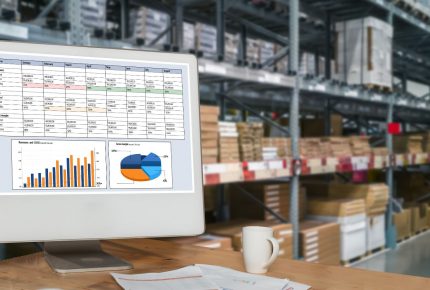Direct to Consumer vs Retail Warehouse Needs

Companies that sell goods have two ways to do it: direct-to-consumer sales, and retail warehouse sales. DTC brands sell products directly to customers, while retail warehouse sales involve an intermediary step to fulfill orders. What’s the difference between direct-to-consumer (DTC) sales vs retail warehouse needs? It’s important to know which marketing strategy is better for your company. It affects your operation and the speed at which your orders are filled. Here’s how to choose the right sales method for your business.
Direct to Consumer vs Retail Warehouse Needs
Definition: Direct-to-Consumer Sales
Direct-to-consumer sales are also called DTC sales. Selling directly-to-consumer means that the company has direct contact with its customers, usually, through its own sales platform or sales representatives.
DTC businesses offer a shorter path from company to customer. It’s a smaller, more connected way of interacting with your customers, leaving them with a positive shopping experience. However, it can also mean that you have to take a more involved role as the company owner or manager.
Advantages of Direct to Consumer
Most sales start as direct-to-consumer sales. The advantage is a close connection between the retailer (company) and the customer. You can communicate directly with the customer base who want to buy your product.
When customers shop on your website, they can make a purchase and receive the product directly from you. It puts you at the front line of the company, handling and dispatching orders.
Traditional retail business models often utilize brick-and-mortar store locations. A customer can enter a physical store and make a purchase without a middleman.
Disadvantages of Direct to Consumer
There are some disadvantages to this retail model.
- It’s a lot of work for any company
- You must maintain a close relationship with every sale that is made
- You can lose touch with your client base if you aren’t interacting with your customers
- You need to build your own audience, usually through social media outlets
Retail Warehouse
Retail warehouse sales employ a warehouse provider (a third-party logistics or 3PL partner) who handles sales and orders.
It can be an efficient way to manage a larger company or to handle orders when the demand increases.
Warehouse sales demand less involvement from the company’s owner. It gives more time for business operations, rather than direct involvement in every individual sale.
Advantages of Retail Warehouse
The first advantage of retail warehouse sales is having more time on your hands. Companies not involved in direct consumer sales often have more time to grow their business further.
Retail warehousing can also make it easier to fulfill larger orders. Also, when your business starts growing bigger, it’s easier to keep up with order fulfillment.
Disadvantages of Retail Warehouse
Some companies prefer to have a close connection with their customers. They believe that retail warehousing makes them too far removed from their clients.
Companies sticking to direct-to-consumer sales might risk their ability to grow long-term past the orders they can wrap and ship!
Also, supply chain issues can cause issues with delays and create a negative customer experience.
Direct to Consumer vs Retail Warehouse Needs
Both direct-to-consumer sales and retail warehouses have their advantages and disadvantages. The model you should choose depends on the type of company you’re running – and where you might want to see it in the future.
Nebraska Warehouse One-Stop-Shop | TechnologyEnabled 3PL Value-Added Services Warehouse | Freight Broker | Logistics
Nebraska Warehouse doesn’t just help to facilitate your shipments, but we are truly a one-stop-shop solutions provider. Our services include:
-
- Professional Storage Development and Management
- Quality controlled Environment
- Responsive, Personal Customer Service
- Reasonable Price
- Real Estate Development and Management
- LTL & FTL Shipping
- Refrigerated Trucking & Storage
- E-Technology Software
- Transportation Freight
- Dedicated Contract Warehousing
- 3PL Public Warehousing
- 3PL Specifications
Nebraska Warehouse One-Stop-Shop | TechnologyEnabled 3PL Value-Added Services Warehouse | Freight Broker | Logistics
Nebraska Warehouse doesn’t just help to facilitate your shipments, but we are truly a one-stop-shop solutions provider. Our services include:
Latest News
The latest information about our Omaha storage warehouse services
Get in touch
Address
10064 S 134th Street, Omaha, NE 68138
Telephone
+1 (402) 896-2200









